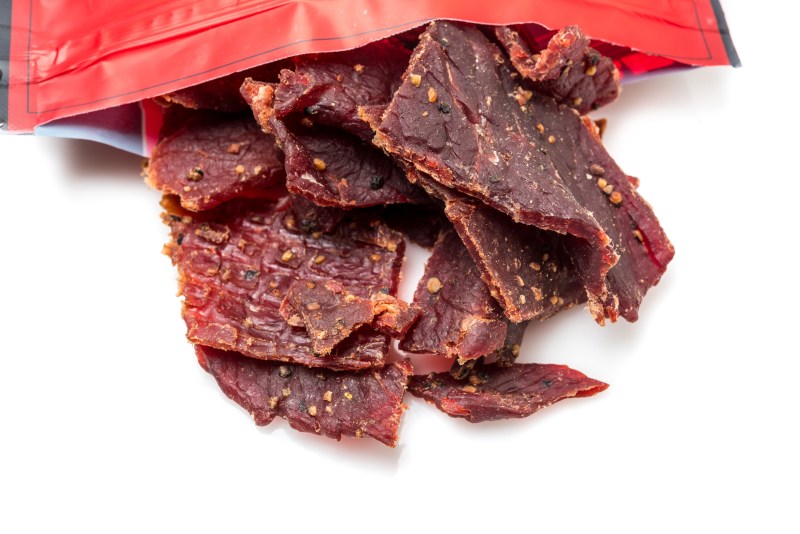A high-protein diet can dramatically improve your life, helping you lose weight, build muscle, and feel more satisfied after a meal. But some people are starting to get worried. Is it possible to have too much protein? What side effects might that cause?
In this article, we’ll tell you everything you need to know about protein, including how much you should have, how much is too much, and what can happen when you eat too much. Let’s dive in and learn the facts about protein.
What is protein?

Protein is composed of a variety of amino acids. The human body uses 20 different amino acids, which are like raw materials for your body to use to build muscles, skin, and cells. With different combinations of amino acids, you can build everything in your body.
How much protein should men have daily?

There are a few ways to calculate your daily protein intake. The most common source is the Daily Value, which is used to calculate the % Daily Value on nutrition labels. The daily value of protein is 50 grams. For a more precise estimate, you can use 0.35 grams per pound of body weight, so a person who weighs 180 pounds should eat a minimum of (180* 0.35) = 63 grams of protein.
Is there such a thing as too much protein?

It is possible to eat too much protein. Most protein exceeding your daily requirements won’t be used in your body and can result in a few side effects. However, if you’re in a bulking phase, bodybuilding, or doing anything that requires you to grow a lot of muscle, taking in a lot of excess protein can be very helpful to ensure your muscles have more than enough material and energy.
In general, the upper limit for how much protein you should eat is about 1 gram per pound of body weight. That’s 180 grams for the same 180-pound person mentioned above. If you’re a really intense bodybuilder or still struggling to build muscle, you can go above even this, but this is enough for almost anyone.
What are the side effects of overconsuming protein?

Protein is more difficult to digest than other food types, so it may cause some digestive symptoms. It’s also possible for long-term overconsumption of protein to weaken your bones and even lead to osteoporosis.
An extremely protein-focused diet can also result in problems from underconsuming other types of food. The theory of macronutrients divides food into three major categories — protein, carbohydrates, and fat. People have been told for a long time that carbs and fat are bad, but they’re necessary elements of your diet, and focusing on protein to the exclusion of all carbs and fat can leave you with less energy and nutrition overall.
How does protein intake affect your physique goals?

Eating a lot of protein can be very helpful for fitness goals. A diet that’s high in protein has been shown to help with weight loss because protein helps you feel full without contributing as much to fat storage. At the same time, eating more protein helps you maintain fat-free body mass, such as muscles, during weight loss.
More protein can also help you build muscle quickly. Remember, amino acids are what muscles are made of, so your muscles need the raw material of protein in order to grow. Eating enough protein can help you lose weight and gain muscle, possibly even at the same time.
Tips for the ideal protein intake

Stock up on high-protein food
The easiest way to eat healthy is to make healthy food available. I’m sure you’ve heard the advice to keep nuts or fruit to snack on instead of chips or candy. Fill your fridge with meal ingredients full of protein, like meat, fish, and tofu, and high-protein snacks like cheese sticks, cottage cheese, and jerky. Now, when you reach for something to eat, you’ll be reaching for protein automatically.
Keep a record
You don’t have to record your every move in order to eat enough protein, but it can help if you’re struggling. Keep a food journal and use it to calculate your protein intake; there are also plenty of food journal apps that can calculate things like that for you. Good record-keeping can help you get enough protein and keep you from getting too much, although most Americans get too little rather than too much.
Experiment
Rather than calculating and doing math, you can experiment with your protein intake and see how you feel. What happens if you eat three eggs instead of two in the morning? Do you have more energy? Does your digestion feel better if you only eat one egg? Scale your protein intake up and down to find out if you’re in the right place.
Frequently asked questions

What foods are high in protein?
Meat is the most obvious high-protein food, with chicken and fish being some of the best sources. There’s also milk and other dairy products, eggs, and vegetable sources like soy and peas.
Who should take protein supplements?
Most adults don’t get enough protein. If you’re not drinking multiple protein shakes per day or strictly following a high-protein diet, you’re probably not getting too much protein, and you might not even be getting enough.




